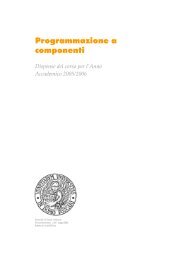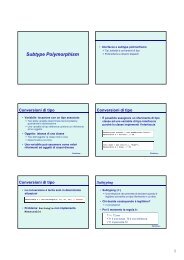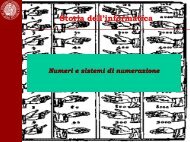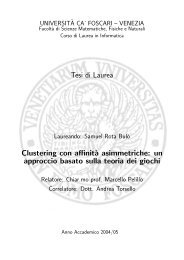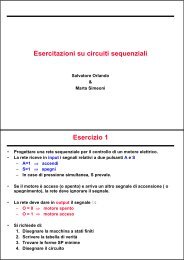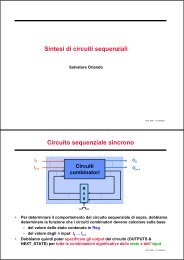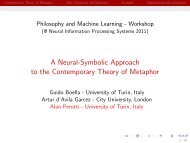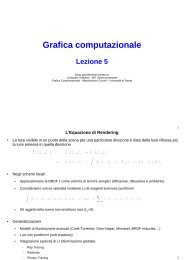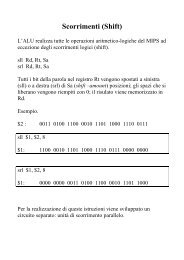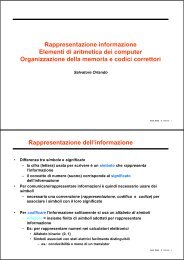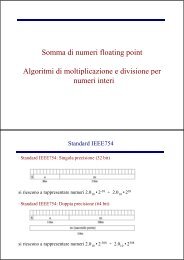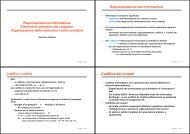Foscari - Dipartimento di Scienze Ambientali, Informatica e Statistica
Foscari - Dipartimento di Scienze Ambientali, Informatica e Statistica
Foscari - Dipartimento di Scienze Ambientali, Informatica e Statistica
Create successful ePaper yourself
Turn your PDF publications into a flip-book with our unique Google optimized e-Paper software.
1 We use the passive:<br />
a when we are more interested in the person or object that experiences an action than the person<br />
or object that performs the action.<br />
The New York stock exchange was founded in 1792. (The stock exchange is the most important<br />
element in this sentence, the identity of the person who founded it is irrelevant.)<br />
b when we don’t know or cannot express who or what performed the action.<br />
Four hundred thousand cre<strong>di</strong>t cards are stolen every year. (We don't know exactly who steals<br />
the cards.)<br />
The photocopier was left on all night. (We don't know who was the last person to use it.)<br />
c to describe processes. We use by to say who or what performs the action.<br />
The chemicals are transported by lorry and are then delivered to the factory.<br />
d to report formal decisions or to make announcements.<br />
It has been decided to lay off 1,000 workers.<br />
It was agreed to spread the redundancies over six months.<br />
2 Verbs often used in the passive:<br />
a to describe processes: is transported / is collected / is transferred / is analysed<br />
b to describe creation and <strong>di</strong>scovery: was produced / was invented / was <strong>di</strong>scovered<br />
c to describe damage and injury: was harmed / was damaged / was killed<br />
3 We don't use the passive when:<br />
a we want to be more informal, e.g. in emails and spoken English.<br />
A comparison was made of the two products. (formal, scientific)<br />
We compared the two products. (neutral, spoken English)<br />
b it is important to be <strong>di</strong>rect and easy to understand, e.g. in manuals and instructions.<br />
It is essential that the <strong>di</strong>sk drive unit is switched on before use. (in<strong>di</strong>rect)<br />
Make sure you switch on the <strong>di</strong>sk drive unit before using it. (<strong>di</strong>rect)<br />
A Underline the correct form in italics.<br />
1 Fifty thousand copies sold / were sold last year.<br />
2 He has promoted / has been promoted.<br />
3 They have promoted / have been promoted the movie all over the world.<br />
4 It decided / was decided that the service should <strong>di</strong>scontinue / should be <strong>di</strong>scontinued.<br />
5 The inflation rate is / has gone up.<br />
6 He is / has bought himself a car.<br />
7 Your taxi is / has arrived.<br />
8 She was / had taken to the airport.<br />
9 The machine was / had stopped far repairs.<br />
10 An important document had lost / had been lost.<br />
B Put the verbs in italics into the active or passive form of the past simple.<br />
An incre<strong>di</strong>ble mistake occur in a hospital. A nurse notice that many of their dying patients had one<br />
thing in common: they had all stayed in same room in intensive care. A team bring in to investigate the<br />
possible causes, and many precautionary measures take: the room fumigate; the air con<strong>di</strong>tioning unit<br />
98



